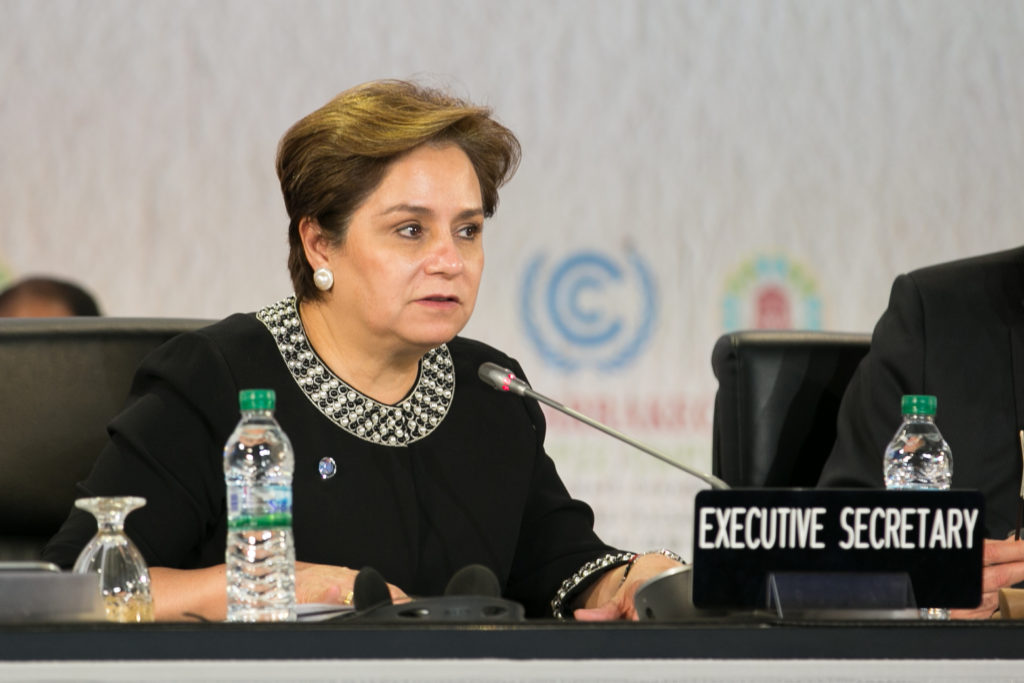Rapid breakthroughs are pushing eight key sectors closer to the tipping points necessary to reach zero emissions by 2050 and avert the worst impacts of climate change, according to the Climate Action Pathways report, published by the UNFCCC High-Level Climate Champions and the Marrakech Partnership.

Under the leadership of the Champions, these Pathways have been produced by the Marrakech Partnership for Global Climate Action – a global alliance of more than 320 major initiatives and coalitions – including the International Union for Conservation of Nature, Oxford University, World Economic Forum, the World Health Organisation, and WWF – located across 27 countries.
Each Pathway sets out the near- and long-term milestones for limiting the global temperature rise to 1.5°C in the areas of energy, cities and other human settlements, industry, land use, oceans and coastal zones, transport, water and resilience. Collectively, they provide a blueprint to coordinate climate ambition among cities, regions, businesses and investors in the run up to the COP26 UN climate change conference set for Glasgow in November 2021.
The 2015 Paris Agreement calls on all countries to reach net zero emissions by mid-century, and limit warming to 1.5°C.
The list of sectors embarking on the race to zero emissions is still growing, with the healthcare sector, responsible for 4.4% of net global emissions, the latest to step up.
Building on the NHS’ ambition to reach net zero by 2040, the international organisation Health Care Without Harm’s Health Care Climate Challenge is joining the Race to Zero, helping to mobilise more hospitals and health systems towards zero emissions by 2050.
Opening Day of the Race to Zero Dialogues
The Climate Action Pathways arrive as the High-Level Champions kick off the Race to Zero Dialogues, a two-week series of nearly 100 virtual events between November 9 and 19, 2020 examining how to drive the systems transformations needed to mitigate climate change, while building resilience to its impacts. The events bring together major leaders across multiple time zones, including Heads of State, Ministers, CEOs, Mayors, Governors, and other international figures.
United Nations Secretary-General, António Guterres, said: “I thank the High-Level Climate Champions for convening these Dialogues on the original dates of COP26. The postponement highlights the disruption the COVID-19 pandemic has caused, and that climate action is more urgent than ever.”
Alok Sharma, UK Secretary of State for Business, Energy and Industrial Strategy and COP26 President, said: “Over the next nine days, I hope that these Race to Zero Dialogues will spark new ideas, alliances, and action which will drive progress. It’s great to see the Dialogues include such a wide range of voices, from civil society organisations, young people, businesses and investors.”
UN Climate Change Executive Secretary, Patricia Espinosa, said: “I believe the Race to Zero campaign – and these Dialogues – are essential to creating the necessary momentum leading to a successful COP26. While our race to achieve zero emissions is a formidable challenge, these Dialogues show that together, we can work towards achieving the goals of the Paris Agreement and unleash its full potential.”
Gonzalo Muñoz, the Chilean High-Level Climate Champion, said: “Achieving the goals of the Paris Agreement requires us to undertake a major transition, from where we are today to where we need to be by 2050. The journey is challenging, and time is short. For both these reasons, it is vital that we have a clear map of the route ahead.”
Launch of the Race to Zero website
To bring to life both the Pathways and the Dialogues, the Champions on Monday, November 9 launched the Race to Zero website. Developed in partnership with the UNFCCC, the editorial platform will tell stories of rapid transitions, normalising the idea of a zero-carbon world, which is already a political reality.
Nigel Topping, the UK High-Level Climate Champion, added: “This new platform will be a critical proof-point in our theory of exponentialism. Exponential, non-linear change has been central to all major shifts in human history. Like it or not, exponential change is also increasingly how change occurs on our digitally connected planet of interdependent economies and cross-cutting systems of government. Ripple effects no longer undulate, they surge.”
